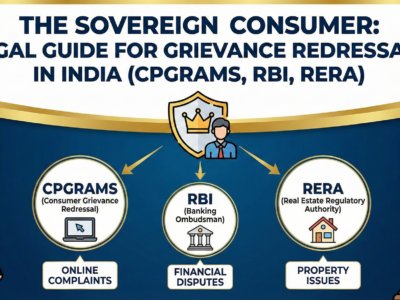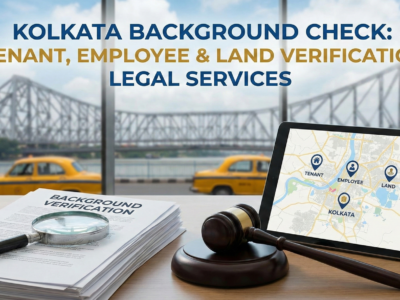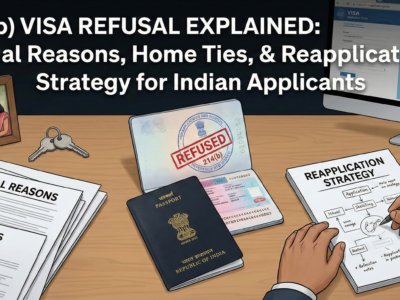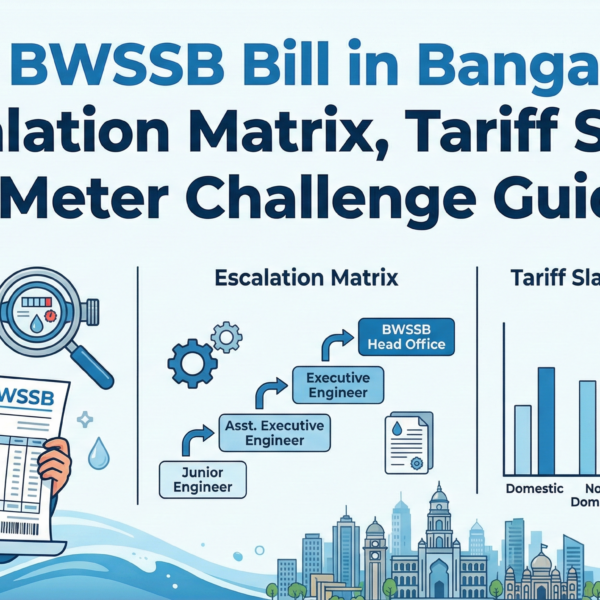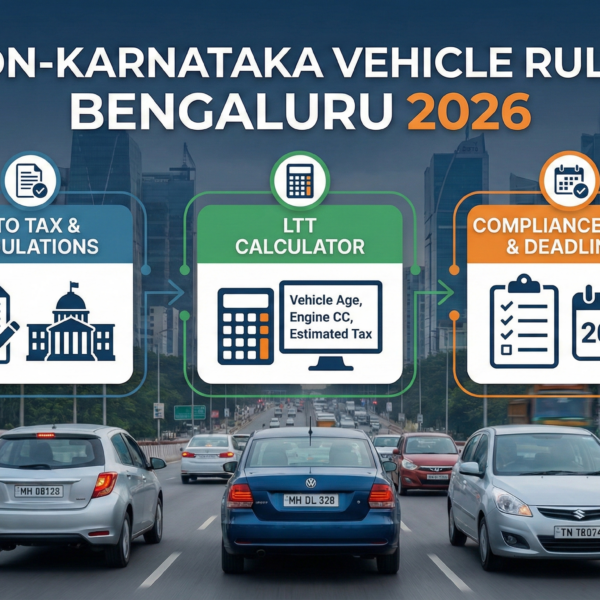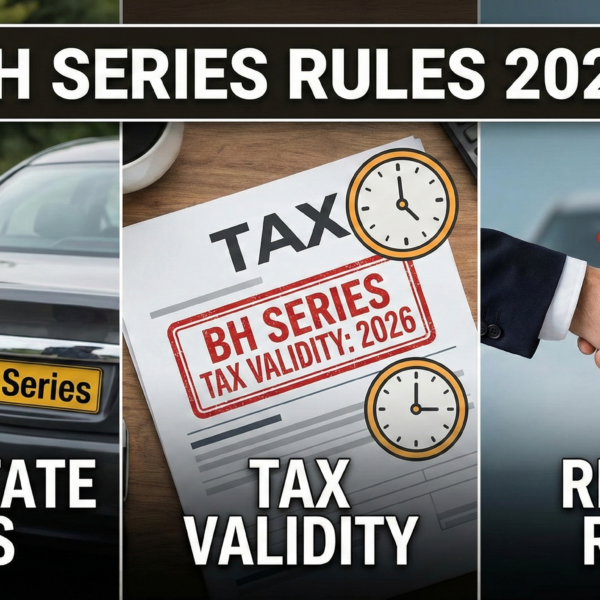In mid-2025, an Indian student’s dream of studying in the U.S. was halted not by her grades or finances, but by a digital ghost: a pseudonymous Reddit account she hadn’t listed on her visa form. The consular officer claimed the public account was “not visible,” issued a 221(g) refusal, and cast her into the bureaucratic limbo of “administrative processing.” This incident is a stark warning for all U.S. visa applicants. The border is no longer just a physical line; it’s a digital checkpoint you must cross before you ever leave home. This guide deconstructs this new reality.
The Digital Ghost
How an Undisclosed Social Media Account Can Derail Your U.S. Visa Application
In mid-2025, an Indian student's dream of studying in the U.S. was halted not by her grades or finances, but by a digital ghost: a pseudonymous Reddit account she hadn't listed on her visa form. The consular officer claimed the public account was "not visible," issued a 221(g) refusal, and cast her into the bureaucratic limbo of "administrative processing." This incident is a stark warning for all U.S. visa applicants. The border is no longer just a physical line; it's a digital checkpoint you must cross before you ever leave home. This guide deconstructs this new reality.
What's Your Applicant Profile?
Click a profile to see the key risks and recommendations most relevant to you.
The Legal Architecture of "Extreme Vetting"
The government's power to vet your social media isn't new; it's a repurposing of long-standing laws for the digital age. Understanding this framework is key to grasping why an undisclosed Reddit account can lead to a lifetime ban.
Timeline of Policy Shifts
2017: The "Extreme Vetting" Mandate
Trump Administration Executive Order
An executive order, "Protecting The Nation From Foreign Terrorist Entry," directs federal agencies to implement stricter screening procedures, laying the groundwork for systematic social media vetting.
May 31, 2019: Mandatory Disclosure
DS-160 Form Update
The Department of State makes social media disclosure mandatory for nearly all 15 million annual visa applicants. Failing to list accounts becomes a material misrepresentation.
June 2025: "Public Profile" Mandate
F, M, and J Visa Directive
A new directive instructs F, M, and J visa applicants to set all social media profiles to "public." Maintaining privacy is now officially framed as a suspicious act.
Key Laws at Play
| INA Section | Legal Standard | Application to Social Media |
|---|---|---|
| § 212(a)(6)(C)(i) | Fraud or Willful Misrepresentation | The primary tool. Failing to list a social media handle is deemed a willful lie to obstruct vetting, risking a lifetime ban. |
| § 221(g) | Incomplete / Admin Processing | The procedural tool. Used to pause a case when a social media issue (non-disclosure, private account, content concern) arises. |
| § 214(b) | Presumption of Immigrant Intent | Posts about job searching in the U.S. or "goodbye" parties can be used to deny nonimmigrant visas like F-1 or B-2. |
| § 212(a)(3) | Security & Related Grounds | The core justification. Vetting for terrorist ties, but expanded to vague criteria like "hostile attitudes" toward the U.S. |
The Consequences Spectrum
LOW SEVERITY
221(g) Refusal: Case is paused for "Administrative Processing." Causes delays of weeks to months. Passport is held. High stress, but potentially resolvable.
MEDIUM SEVERITY
214(b) Denial: Visa denied for "immigrant intent." Applicant can re-apply, but must overcome the previous denial, which can be difficult.
HIGH SEVERITY
6C Misrepresentation Finding: Lifetime ban from the United States. A waiver is possible but extremely difficult to obtain. The worst-case scenario for an applicant.
The "Black Box" of Algorithmic Vetting
A human officer likely didn't find your old, anonymous account. An AI did. The government uses powerful, secret algorithms to scan your digital life, and you're subject to their errors and biases without any recourse.
Inside the Vetting Machine
1. Data Inputs
2. The "Black Box"
AI links pseudonyms, scans for keywords, analyzes connections, and flags "derogatory information." The process is opaque and unaccountable.
3. Officer's Dashboard
Common Points of Failure
The system is not infallible. The officer's claim that a public account was "not visible" points to a technological risk you can't control but are held responsible for.
- Technical Glitches: A simple network or server error at the wrong moment.
- Platform Incompatibility: The government's tool may not correctly read every platform's privacy settings.
- Data Caching Issues: The system might be looking at an old, saved version of your profile.
Anatomy of a 221(g) Refusal
A 221(g) isn't a final denial, but it feels like one. It's a procedural holding pen that can delay your plans for months, often triggered by social media issues. For students on a deadline, it's a de facto denial.
Reported Triggers for 221(g) Refusals (Hypothetical)
Note: This chart is for illustrative purposes to show trends.
The 221(g) Response Protocol
Immediate Actions (Day 1)
Clarify instructions at the window. Do not argue. Comply immediately with requests (e.g., make profiles public). Take date-stamped screenshots as proof of your compliance.
Formal Communication (Days 1-3)
Draft a professional email to the consulate. Include ALL identifiers: full name, passport number, DS-160 number. Clearly state the actions you've taken and provide the requested information.
Monitoring & Follow-up (Long-Term)
Monitor your case on the CEAC website. Be patient; avoid repetitive inquiries. If delayed >90 days, send one polite follow-up. Inform your university's DSO. Consult an attorney for very long delays.
Your Strategic Guide to the Digital Border
You can't control the system, but you can control your application. Adopt a proactive strategy to manage your digital identity and minimize risk.
Social Media Audit: Do's & Don'ts
Do
-
Practice Radical Transparency
List every single handle from the last 5 years—active, inactive, pseudonymous, and deleted.
-
Conduct a Digital Audit
Review all posts, comments, likes, and shares. Check what others have tagged you in.
-
Set Profiles to Public (F/M/J)
If you are an F, M, or J applicant, you MUST make your profiles public. Take screenshots as proof.
Don't
-
Falsely Select "None"
Only select "None" on the DS-160 if you have genuinely had zero social media presence. Lying is misrepresentation.
-
Forget Your Digital Footprint
Don't ignore old, inactive accounts. The government's tools are designed to find them.
-
Post Red Flags
Avoid jokes about immigration, contradictions to your DS-160, or engagement with extremist content.
The Bigger Picture: Legal & Ethical Debates
This vetting process doesn't exist in a vacuum. It's a key part of a larger, ongoing debate about the balance between national security, individual privacy, and fundamental rights. Civil liberties groups and legal experts have raised significant concerns.
The "Chilling Effect" on Free Speech
Knowing that every post, like, and comment is subject to scrutiny by a government official for vague criteria like "hostility" can cause applicants to self-censor. This "chilling effect" discourages free expression and association, not just for visa applicants but for the U.S. citizens they communicate with. Applicants may avoid political discussions or dissociate from groups, fearing their online activity will be misinterpreted.
"The policy forces foreign nationals to tailor their online expression to the subjective and often political preferences of U.S. consular officers."
Privacy vs. National Security
While the government cites national security, critics argue the policy is a disproportionate dragnet surveillance program. It's not targeted based on suspicion; it's a mass collection of personal data—political views, religious beliefs, private associations—from millions of people. This information can be stored in government databases for decades, creating a permanent digital dossier that could be used against an individual years later.
The Question of Effectiveness
Is this mass screening even effective? Evidence, including from DHS's own Inspector General and internal tests, suggests it may not be. Reports have found that the programs lack clear metrics for success and often fail to "yield clear, articulable links to national security concerns." This raises questions about whether the immense cost to privacy and free speech is justified by a tangible security benefit.
Conclusion: Navigating the New Digital Border
The U.S. visa process has fundamentally evolved. The border is no longer just a physical line; it's a digital checkpoint you must cross long before you book a flight. Your digital footprint is now a central, high-stakes component of your application. Radical transparency in disclosure and a thorough audit of your online presence are no longer optional—they are essential for navigating this new, complex reality.

